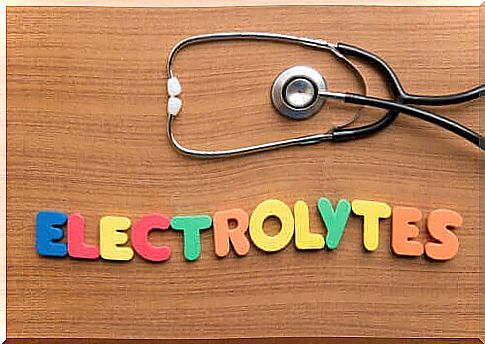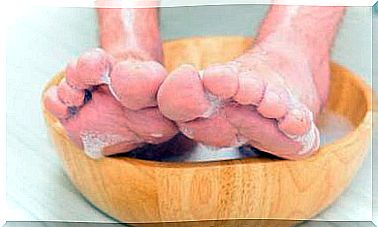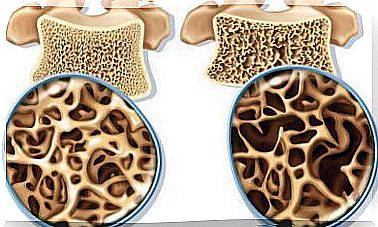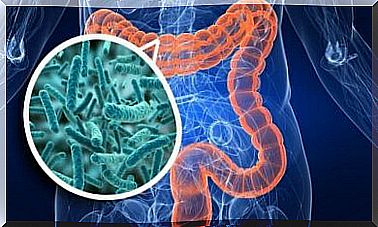What Are Electrolytes?
Electrolytes are substances in the human body which have the ability to carry an electrical charge. They are fundamental elements for the normal functioning of the body, which can be lost and replaced.

Athletes are probably the most familiar with the existence of electrolytes. Hydration is closely linked to this subject, as the publicity that has been generated around these substances shows us.
Electrolytes are minerals found in the blood and also in other body fluids, such as the interior of cells. Their particularity is their ability to carry electrical charges. This means that electrolytes can dissolve in water and conduct electricity.
For the organization, they are fundamental. As we will see, an imbalance in any of them can be fatal. These substances are related to the circulation of water in the body, the pH of the blood – its acidity – and the activity of the muscles.
The main electrolytes in the human body are sodium, chlorine, calcium, phosphorus, magnesium and potassium. For each of them, there are blood concentration values that are considered normal. For example :
- For potassium, normal values are between 3.5 and 5.3 mEq / L
- Sodium has normal values between 136-145 mEq / L
- Chlorine is considered normal between 97 and 107 mEq / L
Causes of electrolyte imbalance
This normal electrolyte balance in the body which fluctuates between certain values can be disturbed. Hormonal changes, diseases of organs such as the kidneys or liver, and even the use of drugs affect it. Some of the most common causes of electrolyte imbalance are:
- Dehydration : When the body enters a period of dehydration, it not only loses fluid, but also these electrical substances. In case of peaks of fever or gastroenteritis with vomiting and diarrhea, electrolytes are eliminated
- Malabsorption syndrome : there are pathologies that modify the process of absorption of nutrients by the intestine. In this case, the ingested electrolytes cannot enter the body.
- Endocrine diseases : diabetes or hypothyroidism are examples of hormonal problems that disrupt the balance of the body’s internal environment
- Chemotherapy : Cancer patients who are undergoing chemotherapy treatments are very likely to have electrolyte imbalance. Treating oncology teams should always be attentive to the process in order to replace what is lost due to treatment
- Medicines : in addition to chemotherapy, there are other relatively common medicines that cause the loss of minerals, such as diuretics and some corticosteroids.
- Kidney disease : One of the jobs of the kidney is to regulate the substances that leave the body. When it fails, it can lose sodium, potassium, calcium, phosphorus and magnesium

The most common imbalances
There are electrolyte disturbances more frequent than others. Some are momentary and tend to correct themselves automatically, while others require external intervention to return to normal values.
While most of these imbalances are not urgent, there are some complicated situations. The long-term consequences can be serious.
With calcium, for example, we can have hypocalcemia (less amount in the blood) or hypercalcemia (more amount in the blood). In women, hypocalcemia is a factor that increases the risk of osteoporosis when they enter menopause. At the other extreme, hypercalcemia can lead to kidney stones.
Sodium, both in excess and in deficiency, impairs neuronal function. Hyponatremia, which is low sodium levels, and hypernatremia, high sodium levels in the blood, produce irritability and confusion. In extreme cases, there are convulsions.
Potassium is perhaps the electrolyte upon which most emergencies can develop. Myocardial cells, which are the muscle cells of the heart, need specific amounts of potassium in order for the heart to beat properly. A lack of potassium in the blood is a trigger for arrhythmias, with the risk that this carries.
In case of excess potassium in the blood, even if there is no emergency, it is recommended to consult specialists to screen for kidney problems. The first manifestation of renal failure may be hyperkalaemia, that is, an increase in blood potassium.

Sources of electrolytes
It is important to know where to find electrolytes in our food. Not only to replenish them in case of losses, but also to organize a varied diet according to these daily needs.
In addition to liquids prepared with electrolytes for sports hydration, we have them in the following foods:
- Calcium : found in many fish, especially sardines, spinach and almonds
- Phosphorus : There is phosphorus in almonds too, as well as in nuts. Lean meats and eggs are reliable sources of this electrolyte, as are dairy products such as cheese and yogurt.
- Sodium : beets, celery, olives and tomatoes
- Magnesium : green leafy vegetables, fish and dried fruits. There is a lot of magnesium in chocolate
- Potassium : finally, potassium is found in good quantities in green vegetables and in many fruits such as bananas and citrus fruits









